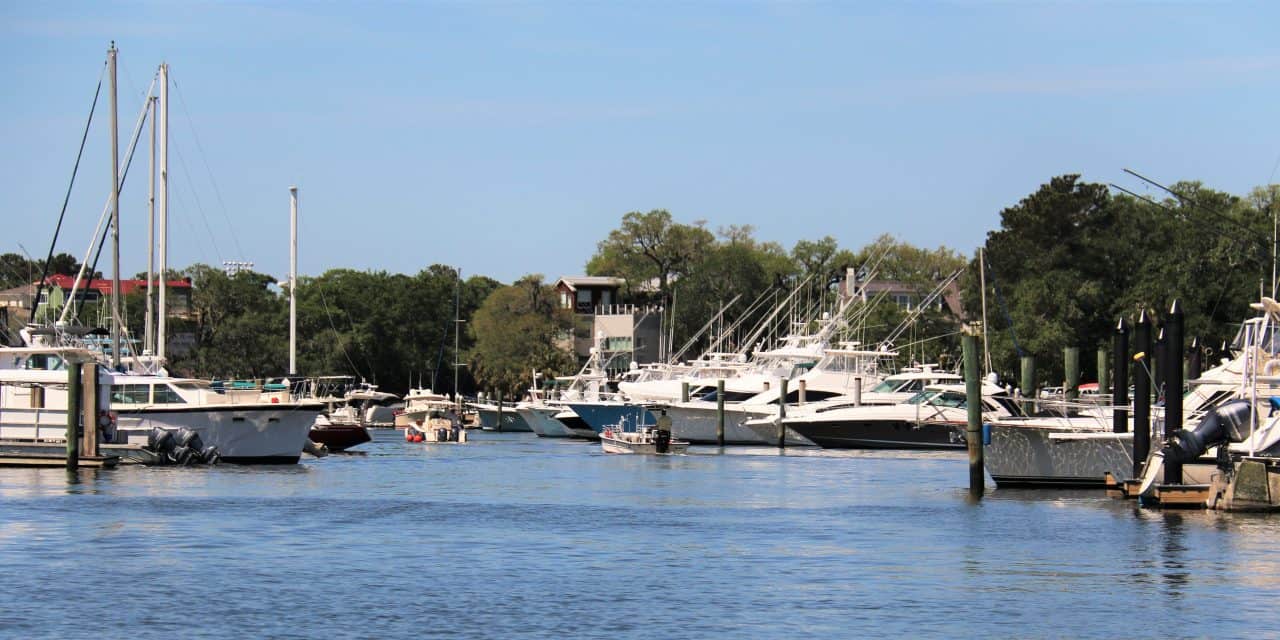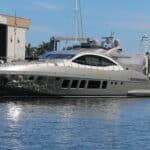What Kinds of Cases do Maritime Lawyers Handle?
We are often asked by friends, clients, and even other lawyers, what kinds of cases we handle as maritime attorneys. The short answer is that we handle many different kinds of issues that arise on the water or involve vessels or maritime businesses of all types (see a more descriptive list of issues that we often encounter here), but people are often surprised to learn that the maritime law of the United States applies not only to commercial vessels and/or to those on the high seas or in international waters but also to recreational boats and their operators and guests. In fact, admiralty and maritime law applies on all navigable waters, including coastal waters and many rivers and lakes connected to these waters as well as some inland lakes which cross state lines. It also generally applies to vessels of all shapes, sizes, and uses, from the largest container ships to wave runners and jon boats. In sum, this means that maritime law governs the majority of boating accidents in South Carolina.
How is the Maritime Law Different from State Law in a Boating Accident Case?
There are many differences between state law and maritime law in a recreational boating accident case. A few of the potential advantages that the maritime law provides to Plaintiffs seeking to recover for their injuries are:
* The Saving to Suitors Clause in
* Many injuries on the water give rise to maritime liens against vessels which are superior in many respects to state law liens and which can only be enforced in federal court in admiralty. Sometimes the maritime lien can be leveraged to give an injured person greater security for the claim or to expedite a resolution of the case.
* The doctrine of joint and several liability applies in most admiralty and maritime cases and is advantageous to injured parties trying to collect in cases involving multiple defendants when one or more of the responsible parties is uninsured or judgment proof.
There are also aspects of the maritime law which are potential pitfalls for the injured and their attorneys, including:
*In certain cases, including many cruise ship injury claims, vessel operators are allowed to provide for a shortened notice requirement and claims period which is far shorter than the statute of limitations provided for in most injury cases. Injured parties who fail to meet these time deadlines may have their claims barred forever.
*The Limitation of Vessel Owner’s Liability Act allows vessel owners to limit their financial responsibility for accidents and losses (like personal injury, property damage, or cargo loss) to the value of the vessel and its pending freight at the end of the voyage, provided they can prove they had no knowledge or involvement in the cause of the incident. Attorneys representing vessel owners often file cases under the Limitation Act which require injured parties to file claims within specific time-frames or risk having their claims barred forever.
*The law of marine insurance differs in many material respects from state insurance law and coverage issues routinely arise in marine insurance cases. The evaluation of potential coverage issues in a vessel owner’s marine insurance policy from the viewpoint of the injured party is essential to prevent them from being used as leverage to try to have a dispute resolved for less than it would ordinarily be worth.
These are just a few of the many differences between state law and maritime law when it comes to recreational boating accident claims.
Should I Get A Maritime Lawyer to Represent Me in a Boating Accident Case?
Because most people don’t know that boating accidents on navigable waters are governed by the maritime law of the United States, and because many people assume that maritime lawyers only handle commercial shipping matters, they often assume that any lawyer that handles personal injury cases is well suited to represent them in a boating accident case. There are many excellent personal injury attorneys in the State of South Carolina, and some of them have the knowledge and experience to competently handle a maritime injury case. However, many attorneys that routinely handle other types of accident or injury cases are not well versed in maritime law and are not knowledgeable about its potential benefits and pitfalls when asserting claims on behalf of their clients in boating injury cases. I was surprised to learn from a collegue on the defense bar a few years ago that many of the boating injury cases that he defended – and to which he knew that maritime law applied – were handled to completion by the attorneys for the injured party without mention of the maritime law at all, to the benefit of the defense. Selecting the right attorney for you and for your case is an important decision, and you should at least consider any potential attorney’s knowledge and experience in the maritime field in the process of selecting the right attorney for any case involving a boating accident to which maritime law applies.
Boating Accidents are Often Caused by Operator Negligence
The major causes of recreational boating accidents, in yachts, jet-skis, wave-runners, ski boats, and other kinds of runabouts alike, are alcohol, excessive speed, operator inattention, careless operation, and improper lookout. These negligent acts and others cause boats to capsize or collide with other boats, docks, sandbars. or other obstructions, and may result in flooding, sinking, or fire along with serious personal injury to the operator and passengers alike. When boat operators are careless, passengers may fall, be thrown overboard, or suffer other injuries, and skiers may be struck by propellers or the vessels towing them. Sometimes negligently designed boats and defective equipment can also cause accidents which give rise to claims against manufacturers or dealers.
Across the country hundreds of people die in boating accidents every year and thousands more are injured. These accidents may also result in severe injuries, unpaid medical bills, lost wages, and permanent disabilities. The attorneys at Cooper and Bilbrey, P.C. are experienced in handling cases arising from boating accidents as well as personal watercraft accidents (Jet Ski, Wave Runner, etc.)
Experienced Recreational Boat Accident Attorneys
If you or someone you know has been involved in a recreational boating accident, please call or email your Charleston, South Carolina Boating Accident Attorneys at Cooper and Bilbrey, P.C., for a free and confidential consultation. We are ready to help today.
Important Notice: The information in this article is not, nor is it intended to be, legal advice, which requires an in-depth knowledge of the facts of your particular circumstances. The law is ever-changing, and this article is not often updated and may be out-of-date or incorrect when applied to the circumstances of your issue. You should consult an attorney for advice regarding your individual situation. We invite you to contact us and welcome your calls and emails if you would like to discuss your matter with us.











